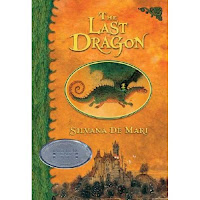
What is it about the home schooled girl that drives writers to make her a tragic heroine? Is there something about her independence added to her quirky cuteness that dooms her in young adult literature? Do male writers, ashamed of their guilty crushes on these characters, feel compelled to do away with them? Why does the male protagonist betray the home schooled girl? Why is he so terrified by her careless disregard of social teen-age norms?
I've been thinking about this after reading three (well... four) titles that on the surface have nothing in common - Shakespeare's The Tempest, M.T. Anderson's Feed*, and Jerry Spinelli's Stargirl (and Love, Stargirl too).
My English 102 students have been reading Shakespeare's play about the magical events that occur when a boat-load of Italian nobels are shipwrecked on an island inhabitted by the magician (and former Italian nobel) Prospero, his servants Ariel and Caliban, and his daughter Miranda - who has been raised and schooled on the island by no one but her father. My class keeps coming back to their discussion of Miranda who perplexes them. Why is she so docile? How can she seem so well-educated and well-spoken and still be easily directed, first by her father and then her love-interest, the recently-stranded Ferdinand? Is her marriage to Ferdinand a blessing or a type of imprisonment? All of the characters consider her to be the perfect image of a young woman, and yet she seems so unreal.
 Violet, the heroine of Feed is likewise "too perfect." Anderson's setting is a futuristic and apocolyptic world where the internet is implanted in the brains of those who can afford it and consumerism runs amok destroying what is left of our fragile ecosystem, The book is masterfully constructed and the teen male narrator, Titus, wins over the readers with his honest voice. Titus falls for the homeschooled Violet, who questions the fate of her world while trying to participate in it. She, like Miranda, is the "perfect" girl - beautiful, smart, funny, in love with Titus, and ultimately killed by the faulty internet implant. Her death was terrible... mostly because Titus has broken up with her because she is too needy and "uncool" - oh, Titus, how could you?
Violet, the heroine of Feed is likewise "too perfect." Anderson's setting is a futuristic and apocolyptic world where the internet is implanted in the brains of those who can afford it and consumerism runs amok destroying what is left of our fragile ecosystem, The book is masterfully constructed and the teen male narrator, Titus, wins over the readers with his honest voice. Titus falls for the homeschooled Violet, who questions the fate of her world while trying to participate in it. She, like Miranda, is the "perfect" girl - beautiful, smart, funny, in love with Titus, and ultimately killed by the faulty internet implant. Her death was terrible... mostly because Titus has broken up with her because she is too needy and "uncool" - oh, Titus, how could you? Spinelli's Stargirl doesn't die (and thank goodness has a sequel) but like Violet, she is betrayed by her guy, Leo, who when faced with the choice of dumping Stargirl and becoming unpopular, he chooses his reputation - et tu, Leo? It is only when Stargirl has moved out of state that he realizes what he has lost.
Spinelli's Stargirl doesn't die (and thank goodness has a sequel) but like Violet, she is betrayed by her guy, Leo, who when faced with the choice of dumping Stargirl and becoming unpopular, he chooses his reputation - et tu, Leo? It is only when Stargirl has moved out of state that he realizes what he has lost.Won't someone save these girls?
* Excuse me, have you read the Astonishing Life of Octavian Nothing? If not, you should stop reading this blog this instant and go find yourself a copy and begin reading it right away.



